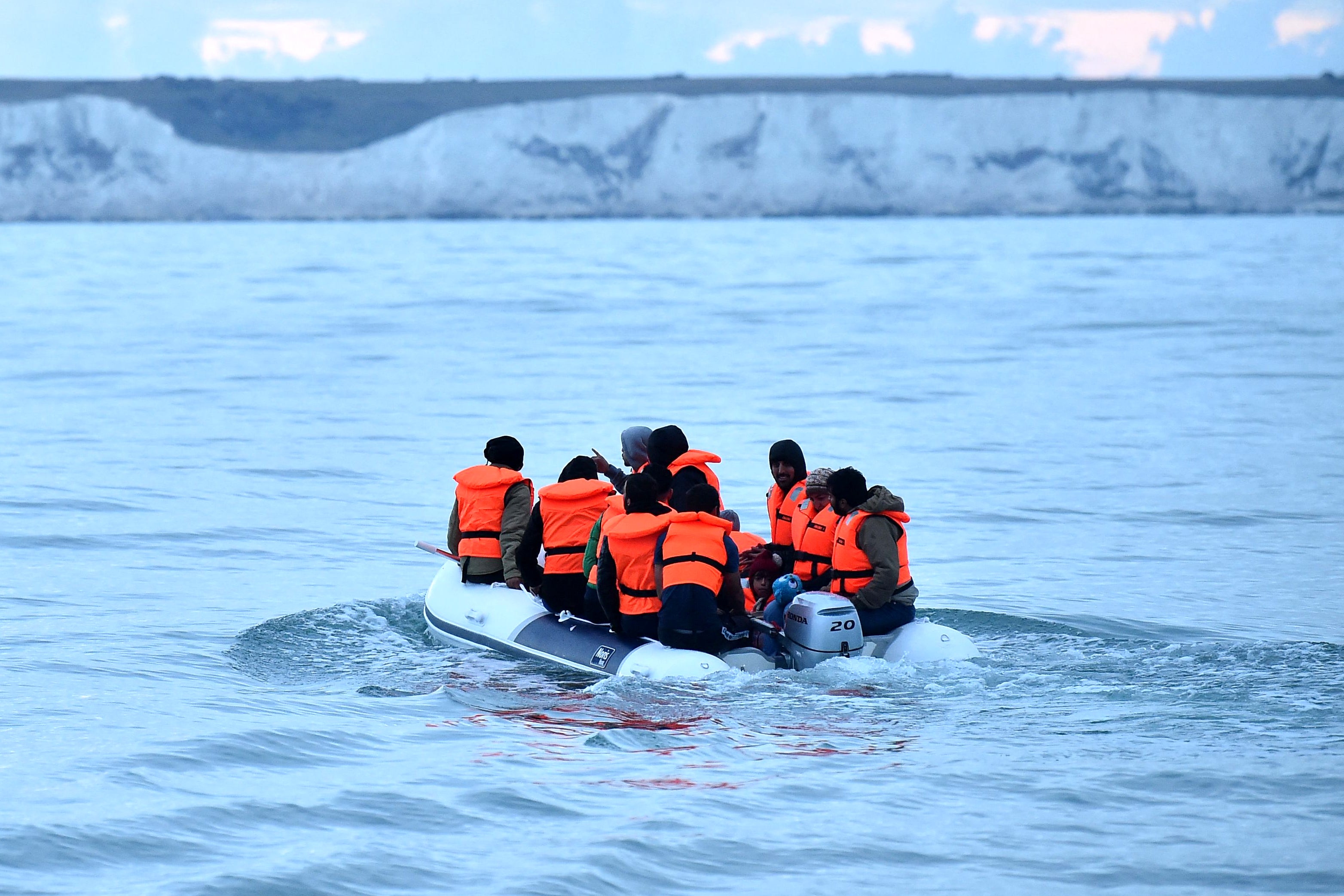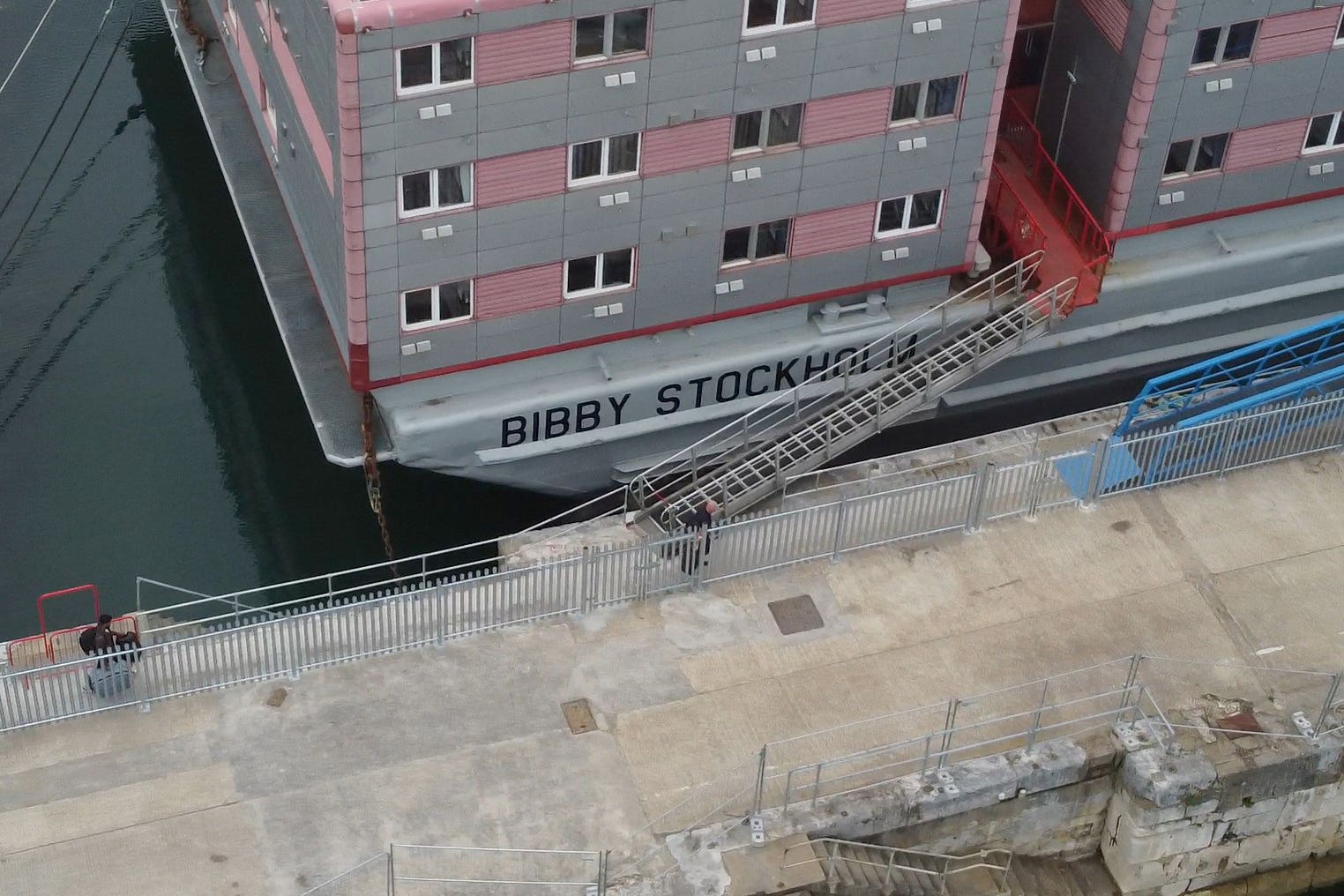Government officials planning for migrant crisis to last for ‘years’
Home Office memo for senior civil servants says government planning to use other sites to house asylum seekers

Your support helps us to tell the story
From reproductive rights to climate change to Big Tech, The Independent is on the ground when the story is developing. Whether it's investigating the financials of Elon Musk's pro-Trump PAC or producing our latest documentary, 'The A Word', which shines a light on the American women fighting for reproductive rights, we know how important it is to parse out the facts from the messaging.
At such a critical moment in US history, we need reporters on the ground. Your donation allows us to keep sending journalists to speak to both sides of the story.
The Independent is trusted by Americans across the entire political spectrum. And unlike many other quality news outlets, we choose not to lock Americans out of our reporting and analysis with paywalls. We believe quality journalism should be available to everyone, paid for by those who can afford it.
Your support makes all the difference.Government officials have drawn up plans to tackle the migrant crisis for at least another five years with RAF bases and a prison set to house people claiming asylum in the UK, it has been reported.
A memo for senior civil servants at the Home Office states that ministers intend to use RAF bases at Wethersfield in Essex and Scampton in Lincolnshire to take 3,700 people direct from Dover following health and safety checks.
HMP Northeye near Bexhill, East Sussex, is also considered a potential site for people who have made the treacherous journey across the Channel, according to the memo, seen by The Daily Telegraph.
It comes after the government was forced to evacuate the Bibby Stockholm migrant barge following the discovery of the dangerous Legionella bacteria - just days after the first occupants arrived on board.
The 39 asylum seekers who had been placed on the vessel in Portland, Dorset, were removed after the bacteria – which can cause a serious type of pneumonia – was found in the water supply.
Letters handed to asylum seekers on the Bibby Stockholm said the contaminated water sample had been taken on 25 July, but The Independent was told the test results were not sent to private contractors until Monday, and were communicated to the Home Office on Wednesday.
The UK Health Security Agency did not advise an evacuation until Thursday night, and officials said they had gone beyond recommendations by taking everyone off the barge rather than a small group.
Dorset Council has since said that Home Office contractors were told about traces of Legionella on the barge on the same day migrants were transferred onto the vessel on 7 August.
Steve Barclay, the health secretary, insisted in an interview on Thursday morning that ministers were not made aware until 10 August.

The Channel crisis was brought into sharp focus again over the weekend when at least six people died and others went missing when their boat capsized after setting sail from the French coast.
Dozens of people were rescued in an operation involving French and British authorities after a boat struggled in the water on Saturday morning.
Ministers previously said they had planning permission for the sites, aimed at reducing the £6m a day cost of housing 51,000 migrants in nearly 400 hotels across the UK, for up to one year but declined to disclose any plans beyond that.
The memo, dated 24 March 2023, sets out a “value for money” argument for the four sites compared to the government’s current policy of housing migrants in hotels. It says that a senior civil servant was satisfied that the sites in Bexhill, Wethersfield and Scapmton were value for money and that Bexhill could potentially be “used for longer”.
According to the memo, if Scampton was used for just two years, it would not be value for money, potentially costing the taxpayer £2 million more than if migrants were housed in hotels.
The barge in Portland would only provide value for money if its capacity was for 1,000 rather than the government’s current plan for up to 500, the memo adds.
A Home Office spokesperson said using disused military facilities would provide cheaper, more orderly and suitable accommodation for those arriving to the UK on small boats.



Join our commenting forum
Join thought-provoking conversations, follow other Independent readers and see their replies
Comments